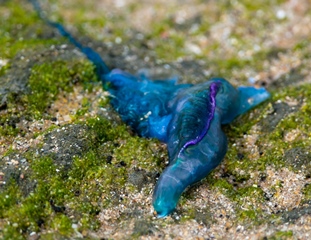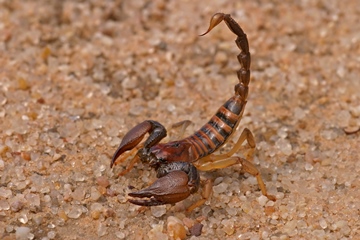What to do with bluebottle and scorpion stings

Bluebottle stings
Bluebottles are often common along our coastline and are considered poisonous. They have specialised stinging cells which may discharge during contact. Stings result in painful and itchy skin eruptions.
If you’ve been stung by a bluebottle while at the beach, you should:
- Avoid scratching or rubbing the stung area
- Wash it off with seawater
- Physically remove the tentacles by scraping off the exposed area with the edge of a sharp knife or a plastic card, for example, a bank card
- Immerse in very warm water for 20 minutes.
- If you still have severe pain or feel unwell, seek medical help immediately.
Scorpion stings

Scorpions are usually found outside the home - mostly under stones or in sandy areas. The most venomous scorpion in South Africa is the Parabuthus species, which is found throughout the Western Cape. It varies in colour from yellow to brown and black, and the legs are usually lighter than the body. Of note is that the tail is
very thick and robust compared to the pincers.
They’re active at night and you must always bear the following in mind:
- Wear shoes when you go outside after sunset.
- Even though most scorpions are not poisonous you should still seek medical assistance or contact your nearest poison centre if you’ve been stung.
- If a child has been stung, take them to the emergency room immediately.
- You can apply crushed ice on the sting to minimise the pain.
- What causes food poisoning?
- Common poisonous plants
- Types of spiders you should look out for
- 6 Types of venomous snakes in the Western Cape
- What to do when you're around bees
- What to do with bluebottle and scorpion stings


